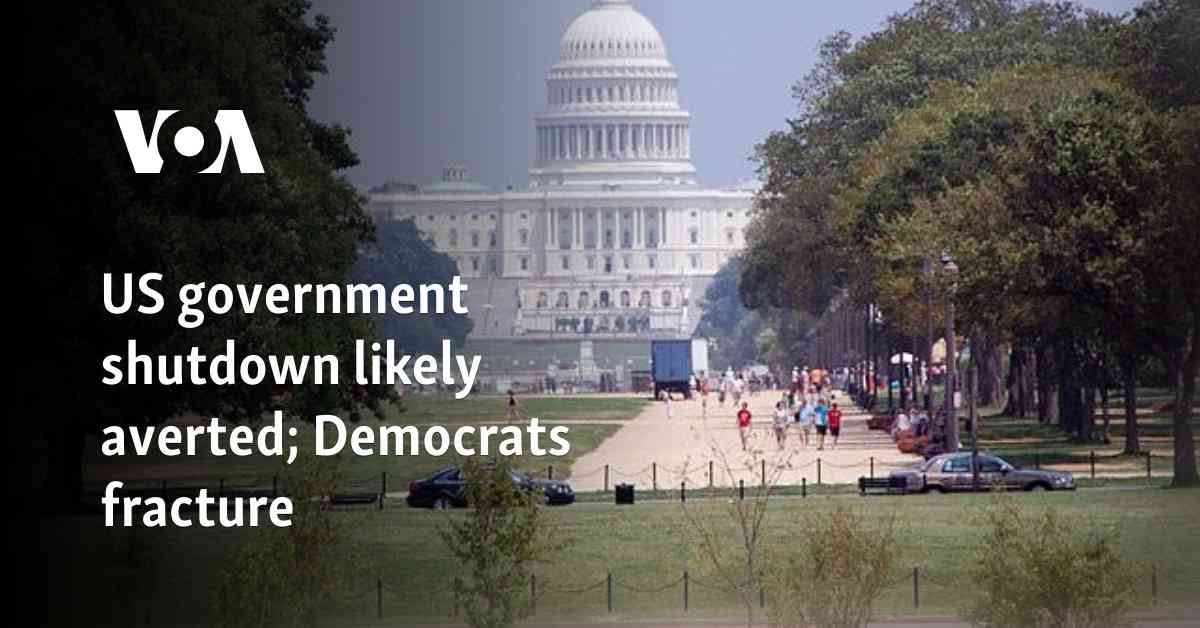The U.S. Senate has successfully navigated through Democratic opposition to pass a stopgap spending bill on Friday evening, averting a potential government shutdown. The bill, which needed at least 60 votes to clear a challenging procedural hurdle, ultimately passed with a 54-46 majority. This development comes after the Republican-controlled House of Representatives had already passed the bill earlier in the week, ensuring that the government would continue operating past the looming March 14 deadline.
Senate Democrats found themselves divided over whether to throw their support behind the short-term continuing resolution (CR) that would fund the government for the next six months. The bill aimed to reduce total government spending by approximately $7 billion from the previous year’s levels, with a shift in funding towards the military and away from non-defense spending. This internal conflict within the Democratic party led to a heated debate on the Senate floor, with many expressing frustration and disagreement over the direction their leadership was taking.
Minority Leader Chuck Schumer, the top-ranking Democrat in the Senate, faced backlash from his party after announcing that despite his personal dislike for the bill, avoiding a shutdown was the lesser of two evils. His decision prompted a group of House Democrats to pen a letter expressing their strong opposition to his plan, highlighting the deep divisions within the party. Former Democratic House Speaker Nancy Pelosi also weighed in, cautioning Senate Democrats against supporting the bill, citing concerns over the potential consequences.
The looming threat of a government shutdown added fuel to the fire, with Schumer warning that failing to pass the Republican funding bill would give more power to the Department of Government Efficiency (DOGE) effort spearheaded by Elon Musk. He emphasized that a shutdown would only serve to accelerate DOGE’s activities, potentially leading to the closure of key government agencies. The urgency of the situation prompted a flurry of activity and debate on Capitol Hill, with lawmakers scrambling to find common ground and avert a crisis.
As the Senate grappled with the funding bill, House Minority Leader Hakeem Jeffries remained tight-lipped on whether he supported Schumer’s decision, underscoring the complexity and pressure surrounding the issue. Meanwhile, former President Donald Trump commended Schumer for his stance, praising his courage and urging bipartisan cooperation to address the funding challenges. Trump’s endorsement added a layer of political intrigue to the unfolding drama, highlighting the high stakes involved in the budget negotiations.
The passage of the stopgap spending bill marked a critical milestone in the ongoing efforts to keep the government running smoothly. The bill’s approval in the Senate, following the House’s earlier endorsement, paves the way for further discussions and negotiations on government spending for the next fiscal year. Lawmakers now face the daunting task of reconciling differences between the Senate and House versions of the budget, with key issues such as tax cuts and deficit reduction hanging in the balance.
While the immediate crisis has been averted, the larger questions surrounding government spending and fiscal responsibility remain front and center. Independent watchdogs and analysts have raised concerns about the broad claims of fraud and abuse used by DOGE to justify sweeping cuts to federal programs. The political landscape continues to evolve, with competing visions for the future of government programs and services shaping the debate in Washington.
As lawmakers navigate these complex and challenging issues, the fate of critical safety net programs and domestic policy priorities hangs in the balance. The recent showdown over the funding bill underscores the high stakes involved and the need for bipartisan cooperation to address the pressing challenges facing the nation. With the clock ticking on future budget negotiations, the path forward remains uncertain, leaving many questions unanswered and the American public on edge.














